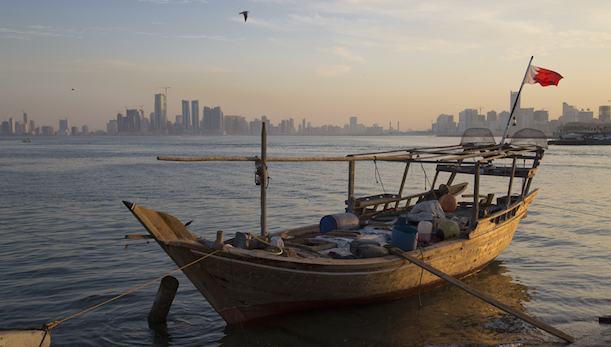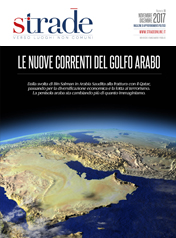Separating politics from religion: a year of reforms in Bahrain
Novembre/Dicembre 2017 / Monografica
Although the road to building a fully egalitarian society in Bahrain is still full of obstacles, 2017 has demonstrated significant acceleration in this direction, as evidenced by the historic approval of the Unified Family Law.

Historically a culturally diverse and tolerant society, Bahrain has traditionally been one of the most progressive countries in the region in terms of social norms, including on women rights, with liberal values upheld in its own Constitution. For this reason, when the 2011 upheaval shook the Kingdom, beyond the political and economic dimension of the tensions, the leadership became involved in its social repercussions, as tensions led to the empowerment of more radical discourse and sectarianism. The authorities increased legal powers in monitoring and regulating the language of religious figures from both the Sunni and Shia sects, as well as in targeting hate speech on social media.
In May 2016 Bahrain’s Parliament passed a measure prohibiting religious figures from participating in political activities. Under an amendment to the 2005 Political Society Law, involvement in the political sphere became off limits to all those who have active religious roles, thus effectively separating the domains of politics and faith. This decision is bound to have far-reaching repercussions on the future developments of social norms in the Kingdom. For example, although Islamist MPs have always been a minority within the Bahraini Parliament, they have often succeeded in being disproportionately influential by enlisting the support of conservative MPs. For example, during the 2014 vote on the implementation of the CEDAW UN women’s rights convention, Islamist MPs who decried the Convention as a “Western plot” which sought to tear Bahrain away from its Muslim heritage were only two votes short of securing a parliamentary majority and defeating the bill. Finally the convention went pass the implementation vote in 2016, but the effort to empower more secular voices continued.
Indeed, 2017 saw further progress in the domain of civil rights and the rebuking of radical religious authority. On 19 July 2017, Bahrain’s King Hamad bin Isa Al-Khalifa ratified the new Unified Family Law after it was unanimously approved by the Kingdom’s Parliament. The law consists of 141 articles dealing with the provisions of engagement, marriage, custody, alms, alimony, and divorce. It is a watershed piece of legislation as for the first time it guarantees that all of these matters be treated according to civil rather than religious law and thus consolidating the rule of law over family matters, a sphere traditionally dominated by religious institutions. For example, the Law recognizes the wife’s right to request a separation or a divorce in civil court and if the husband is not willing to grant his wife her request, the Family Law gives the court the authority to pronounce their separation without the consent of the husband therefore guaranteeing the rights of the wife vis-à-vis, for example, children. The law also stipulates that Islamic courts must give consent to divorce in cases where the physical or mental health of one of the partners is endangered. Finally, the new provisions also reinforce that in all cases preconditions for marriage include the full and free consent of both the man and the woman, proportionality and appropriateness of age.
The main novelty of the law is that it applies to both the main religious sects in Bahrain — Sunni and Shia — after, in May 2009, a codified family law was adopted only by the Sunni sect due to prolonged protests from some radical Shia clerics. Indeed, the theme has been controversial in the country since in 2005 the government announced its intention to pass a similar law and was met by protests by those arguing that the Parliament was not qualified to debate or decide on family matters rooted in religious jurisprudence. Since then, women’s rights activists together with an assortment of Non-Governmental Organizations — including, for example, the Bahrain Women’s Society — have been calling for a common family law that would affirm the civil status of the Kingdom regardless of the opposition of some religious leaders. After years of deliberation, in order to pass the new Unified Family Law, the government engaged a religious committee set up by King Hamad and including religious scholars from both the Sunni and Shia sects who provided a series of recommendations to lawmakers and helped ensure that the new legislation would not contradict religious precepts, thus strengthening its sustainability. Following the promulgation of this law, the reactions have been quite diverse across the spectrum: while several female activists, including lawmakers, have expressed deep satisfaction, some more orthodox clerics have stood firm in their opposition.
While the journey towards creating a fully equal society in Bahrain still faces obstacles, 2017 may very well represent a significant overall boost. At the same time, it reminds us how tightly social affairs are related to the prominence and position of religion in the politics of the country and in the greater region. Indeed, only a critical debate about the role of religious precepts and interpretations can pave the way for more concrete steps in the long journey that Arab Gulf societies should attempt to embrace as communities.
INDICE Novembre/dicembre 2017
Editoriale
Monografica
- Golfo Arabo, l’anno che non c’era: cosa, come e perché della crisi del Qatar
- Arabia Saudita, primi importanti passi verso il cambiamento
- Generare forza attraverso l’unità: l’esempio del Bahrein
- Separare la politica dalla religione: un anno di riforme in Bahrein
- Emirati Arabi Uniti, un 2017 in crescita
- Kuwait e Oman, i mediatori del Golfo
- Gulf Economic Visions: come riprogettare l’economia del Golfo
- Arab Gulf, the year that wasn’t: the who, what and why of the Qatar crisis
- Saudi Arabia, the first important step towards change
- Generating strength through unity: the example of Bahrain
- Separating politics from religion: a year of reforms in Bahrain
- United Arab Emirates, a 2017 of growth
- Kuwait and Oman, mediators of the Gulf
- Gulf Economic Visions: how to redesign the Arab Gulf economy









